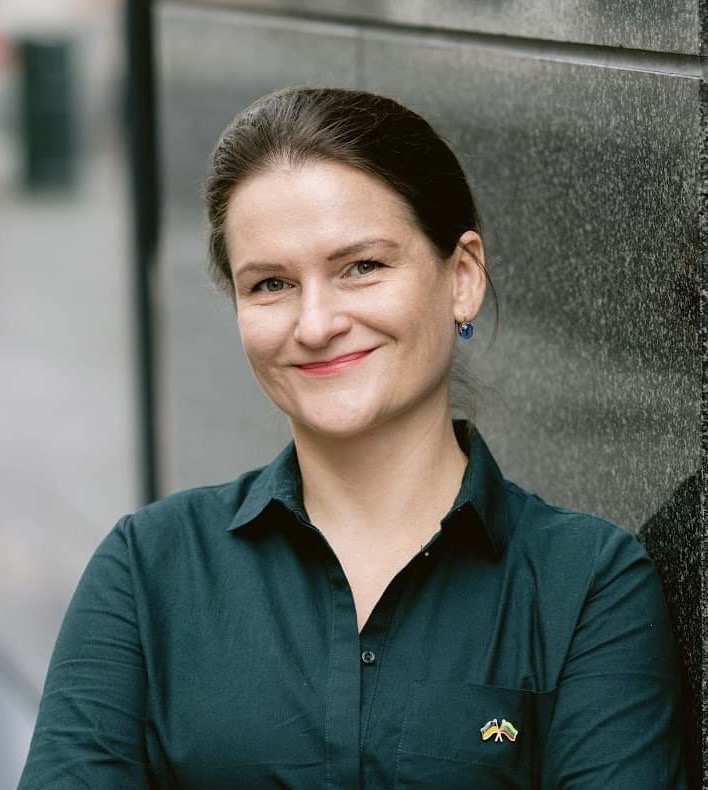EU politicians must make the social economy more mainstream and level out the playing field between social and commercial businesses, say representatives from across Europe’s impact community.
The calls come in the lead up to the European Union elections on 6-9 June, when member states elect MEPs (Members of the European Parliament) to represent their interests for the next five years.
On 16 April, a coalition of impact investing networks, including Impact Europe, published the Investing for Impact Manifesto, calling on MEPs, political parties and EU decision-makers to put impact at the centre of EU policies and public money.
On 26 April, Business for a Better Tomorrow (BFABT), a group of 17 impact business networks across Europe, including Mouvement Impact France and Euclid Network, published an open letter warning politicians not to “give up on the momentum of the Green Deal” to satisfy lobbyist groups campaigning against progressive green policies.
Why EU elections are pivotal in shaping the global social economy
Toby Gazeley (pictured), policy lead at Euclid Network, said that these elections “represent an important inflection point” in the impact economy globally, explaining: “Either Europe will signal that there is still momentum behind finding common solutions to common challenges such as climate change, or we may see a rise in parties that increasingly look inwards, searching for national solutions or quick fixes to challenges which require cooperation beyond national borders.”
He added that the EU is “very active in the social economy work of the UN and OECD”, and that this work would suffer if the EU pulled back from its current “full-throated support”.
 Jana Bour, head of policy at Impact Europe (pictured), said: “[These elections are] important because Europe has been leading [the way] when it comes to sustainable development, and it’s an inspiration for other regions. [It’s crucial] that it doesn’t lose that ambition towards sustainable objectives and impact.”
Jana Bour, head of policy at Impact Europe (pictured), said: “[These elections are] important because Europe has been leading [the way] when it comes to sustainable development, and it’s an inspiration for other regions. [It’s crucial] that it doesn’t lose that ambition towards sustainable objectives and impact.”
With the election results scheduled to be announced on the evening of 9 June, leaders from across Europe’s impact community told Pioneers Post what actions the incoming members of the European Parliament will need to take to continue efforts to strengthen the EU’s social economy.
What actions are the impact community calling for?
1. Promote healthy competition in the market
Caroline Neyron (pictured), managing director of Mouvement Impact France, emphasised the importance of incentivising businesses to prioritise impact by creating healthy environmental and social competition between European entrepreneurs.
She said social enterprises are at a disadvantage, adding: “When you are an impact-driven enterprise your products are never cheaper. They always cost more. If we cannot protect businesses that [tackle] social and ecological issues they can’t have a fair competition.”
According to a study by Dutch consulting firm Kearny, sustainable products are 75-85% more expensive than conventional products. However, politicians could level the playing field between social enterprises and commercial businesses, Neyron said, by introducing regulation that made it easier for them to access much-needed investment.
It’s not a risk for European countries to have green social regulation. It’s an opportunity
Neyron also emphasised that the EU would be in a better position if it “encouraged all companies” to prioritise impact as a preventative measure, rather than a cure to “repair” future crises. She said: “It will cost European societies a lot of money to fight ecological and social trials if businesses do not integrate [impact in their business model] from the beginning. It’s not a risk for European countries to have green social regulation. It’s an opportunity.”
2. Make impact more mainstream, visible and accessible
To further the progress made by the EU’s Social Economy Action Plan, which was launched in 2022 to promote the social economy across the EU, Toby Gazeley of Euclid Network hoped that the next EU Parliament would continue to “increase the visibility of social enterprises”.
To achieve this, he said the next Parliament should pass resolutions calling on the EU Commission to promote social enterprise initiatives and include them in Green Deal programmes, as well as mandate “a commissioner for the social economy” and establish a committee that could advocate on behalf of social enterprises.
Gazeley added that it was crucial to “mainstream concerns [not just] about environmental impact, but also social impact as well”, saying: “The Green Deal does have a social component, but it was never very well elaborated upon. So it exists, but it’s not very clear what it really includes.”
Jana Bour, of Impact Europe, echoed this: “What we would like to see from the politicians is a little bit more ambition to foster investment into social impact. We see that there is a lot more capital directed to the environmental side, but for the social side – for example, if you look at the InvestEU instrument – there is only a 10% element of the social [side] in the whole programme, and that’s not enough.”
 However, visibility is just one step in strengthening the EU’s social economy. Viktorija Braziunaite (pictured), director of the Lithuanian Social Business Association (LISVA), said that “despite the increased attention, social businesses still face significant challenges”.
However, visibility is just one step in strengthening the EU’s social economy. Viktorija Braziunaite (pictured), director of the Lithuanian Social Business Association (LISVA), said that “despite the increased attention, social businesses still face significant challenges”.
She added: “In order for social businesses to fully function and grow, it is necessary to further strengthen their promotion programmes and measures, improve the legal framework and increase public awareness of the benefits and opportunities of social business.”
3. More funding for European social enterprises
 To direct more capital towards the social economy, Norika Salih (pictured), sustainability advocate at #SustainablePublicAffairs, a member organisation of the EU Sustainable Banking Coalition, said that policymakers needed to introduce “a functioning framework that lets ESG impact-focused financial institutions thrive and makes their performance the norm for the rest of the market”.
To direct more capital towards the social economy, Norika Salih (pictured), sustainability advocate at #SustainablePublicAffairs, a member organisation of the EU Sustainable Banking Coalition, said that policymakers needed to introduce “a functioning framework that lets ESG impact-focused financial institutions thrive and makes their performance the norm for the rest of the market”.
To achieve this, the EU Sustainable Banking Coalition, which provides climate-friendly banking services, hopes that the next set of MEPs will “drive capital and influence towards ESG impact-focused financial institutions” by increasing their “representation in EU financial policy bodies”, such as the Economic and Financial Affairs Council (ECOFIN).
It also “seeks to ensure that the EU’s private banking relationships support the goals laid down in the EU Green Deal and the European Pillar of Social Rights”.
Toby Gazeley of Euclid Network said: “The next EU budget needs to have more money for the social economy; not just funding [short-term] projects, but also structural funding that can help social enterprise organisations build ecosystems.”
Jana Bour of Impact Europe said that a major barrier to financing social investment was politicians’ lack of understanding about impact investment. She said: “It’s natural because impact investing is relatively new, so there is a lot of confusion about what it actually is. It’s not just something nice to have. It is really meaningful and can also generate returns.”
To address this barrier, she said that her organisation was planning to launch in 2025 an educational campaign tailored to politicians, that could inform them on how to differentiate between different types of investments. She said: “The more they understand the ecosystem, the more they would be empowered to create the policy frameworks that we need.”
We need to help the politicians to keep the momentum. They need to feel that this is what European society wants
Speaking about how the impact community could better support the next European Parliament, Bour added: “The MEPs are governing the public money and they have the power to make decisions to allocate it more intentionally for greater positive impact. We need to help the politicians to keep the momentum. They need to feel that this is what European society wants.”
Staying hopeful amid opposition from extremists and economic lobbyists
Caroline Neyron of Mouvement Impact France said one obstacle that may hinder the advancement of the social economy in Europe was resistance from “the traditional economical lobby”.
Emphasising the need for the BFABT coalition to “support the Green Deal”, she said: “A lot of economic lobbyists are against the Green Deal. They want to minimise [its impact].”
Neyron also referred to the long-awaited Corporate Sustainability Due Diligence Directive (CSDDD), a law that will require EU and non-EU companies to conduct environmental and human rights due diligence across their supply chains. France, Italy and Germany – the EU’s three largest countries by population – were the last member states to approve the directive, which some believe was ‘watered down’ amid efforts to reach terms that satisfied all member states.
She said: “We are very upset about the reaction to the regulation. Several countries were against it, which was a very big sign for us. After a long period of unanimity, it showed how fragile things are.”
Addressing the danger of political extremism, Bour urged the EU impact community not to lose hope, even when they “see over-polarisation within European society” and parties that are driving the impact agenda “lose their power”.
She said: “At the end of the day, in the legislative making process it’s about building bridges and bringing diverse views together on a single journey. I’m sure that there will [always] be at least a few politicians that we can work with. So, even if we see that things are not going in the right direction, we should not be hopeless because our system allows us to create a very positive, enabling framework.”
Top image courtesy of Freepik.
Thanks for reading Pioneers Post. As an entrepreneur or investor yourself, you’ll know that producing quality work doesn’t come free. We rely on our subscribers to sustain our journalism – so if you think it’s worth having an independent, specialist media platform that covers social enterprise stories, please consider subscribing. You’ll also be buying social: Pioneers Post is a social enterprise itself, reinvesting all our profits into helping you do good business, better.

